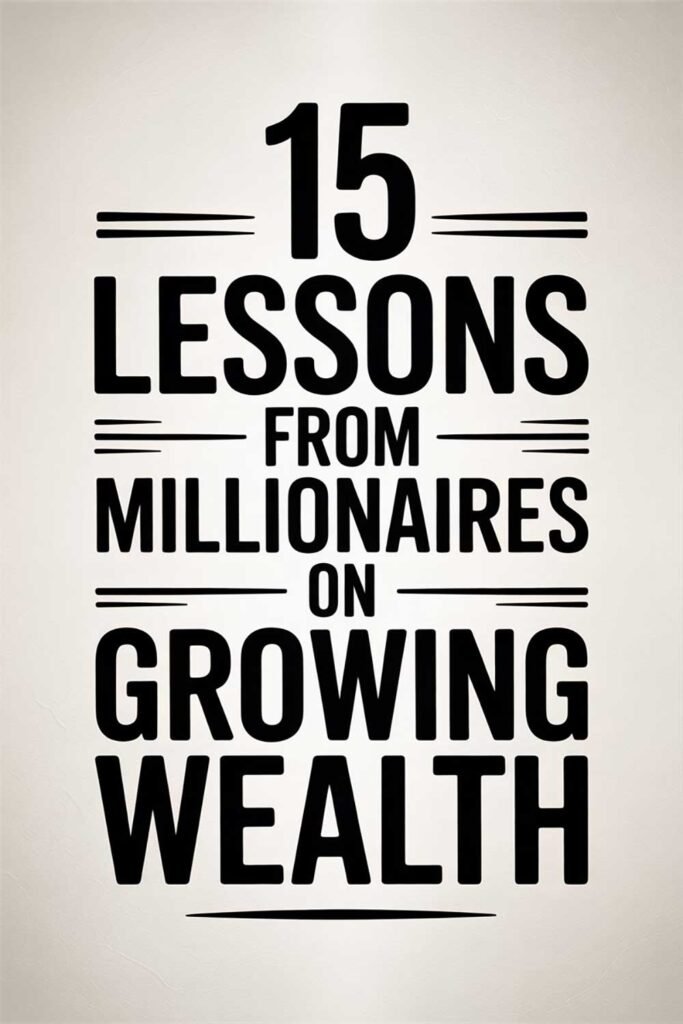Why Writing Down Your Money Goals Changes Everything
It might sound simple, but the act of writing down your money goals can completely change your financial future. It transforms vague wishes into clear targets. It gives you direction, motivation, and something to be accountable to. Whether you’re trying to save for a house, pay off debt, or retire early, putting your goals on paper (or screen) makes them real.

In this article, you’ll learn why writing down your money goals works, how to do it effectively, and real-life stories from people who achieved big results just by starting with pen and paper.
Why Writing Things Down Works
Studies show that people who write down their goals are 42% more likely to achieve them. That’s a massive return for such a simple action.
Here’s why it works:
- Clarity: Writing forces you to define exactly what you want.
- Focus: You prioritize what’s truly important.
- Accountability: You create a physical reminder of your intentions.
- Visualization: Seeing your goals regularly keeps them top of mind.
- Motivation: Progress becomes visible, which fuels consistency.
Real-Life Example:
Emma, a 28-year-old teacher, always wanted to save for a solo trip to Europe. But it didn’t happen until she wrote the goal down in her journal with a specific date and amount: “$3,500 for Europe by July 1st.” That clarity helped her cut back on spending and find freelance work on weekends. She hit her goal two weeks early.
How to Write Down Your Money Goals for Maximum Impact
1. Make Your Goals SMART
Use the SMART formula:
- Specific: What exactly do you want?
- Measurable: Can you track your progress?
- Achievable: Is it realistic for your situation?
- Relevant: Does it align with your values?
- Time-bound: When will you achieve it?
Example: Instead of saying, “I want to save money,” write: “I will save $5,000 for an emergency fund by December 31st by setting aside $210 per paycheck.”
2. Write It Where You’ll See It Often
Put your written goal somewhere visible:
- Your phone lock screen
- Bathroom mirror
- Budget binder
- Vision board
Repetition builds belief and behavior.
3. Break Big Goals Into Mini-Milestones
Large goals can feel overwhelming. Break them into smaller steps.
Example: “Pay off $12,000 in credit card debt” becomes:
- Pay off $1,000 every month for 12 months
- Celebrate each $1,000 milestone
4. Add Emotion to the Equation
Write why the goal matters to you. Tie it to your deeper values or dreams.
Example: “I want to save $10,000 so I can take a year off work and travel with my family before my kids graduate.”
Real-Life Examples of Written Money Goals Paying Off
Kyle’s Story:
Kyle had $8,000 in student loan debt and no clear plan. After reading about goal setting, he wrote down: “Pay off $8,000 in 10 months by paying $800 monthly.” He started a dog-walking gig to supplement his income. By writing it down and tracking every payment, he hit his target a month early.
Sarah’s Story:
Sarah dreamed of starting her own bakery. She wrote: “Save $15,000 in 2 years for business startup costs.” With the goal visible on her fridge and in her planner, she stuck to her budget and started selling cookies at farmer’s markets. Today, she runs a full-time bakery from home.
Extra Tips for Written Money Goals
- Use a financial journal: Dedicate a notebook or digital doc to your goals and track progress.
- Review weekly: Set 5 minutes aside to check in.
- Update goals as needed: Life changes, and so should your plan.
- Celebrate progress: Acknowledge even the smallest wins to stay motivated.
20 Quotes to Keep You Committed to Your Goals
- “A goal without a plan is just a wish.” – Antoine de Saint-Exupéry
- “What gets written gets done.” – Unknown
- “You can’t hit a target you can’t see.” – Zig Ziglar
- “Writing is the painting of the voice.” – Voltaire
- “Goals give our lives direction.” – Unknown
- “Motivation gets you started. Habit keeps you going.” – Jim Ryun
- “The secret of getting ahead is getting started.” – Mark Twain
- “Don’t just dream it. Write it. Plan it. Do it.” – Unknown
- “You are never too old to set another goal or to dream a new dream.” – C.S. Lewis
- “Success is the sum of small efforts, repeated day in and day out.” – Robert Collier
- “If you fail to plan, you are planning to fail.” – Benjamin Franklin
- “Clarity precedes success.” – Robin Sharma
- “Setting goals is the first step in turning the invisible into the visible.” – Tony Robbins
- “You become what you think about.” – Earl Nightingale
- “Discipline is choosing between what you want now and what you want most.” – Abraham Lincoln
- “The best way to predict the future is to create it.” – Peter Drucker
- “Dream big. Start small. Act now.” – Robin Sharma
- “The act of writing is the act of discovering what you believe.” – David Hare
- “What gets measured gets improved.” – Peter Drucker
- “Start where you are. Use what you have. Do what you can.” – Arthur Ashe
📸 Picture This
You open your journal or look at your vision board, and there it is: your money goal written clearly and powerfully. It reads: “Save $20,000 by next July for a family RV adventure.” Every time you pass up a purchase or put money into savings, it feels good. You’re not lost or guessing — you’re on a mission. The numbers grow. The dream gets closer. And it’s all because you wrote it down.
What would your life look like if your biggest money dreams lived outside your head and on paper instead?
💬 Please Share This Article
If this inspired you to write your money goals down and take control of your financial future, share it with someone you care about. Your success could inspire theirs.
⚠️ Disclaimer
This article is based on personal development and financial goal-setting principles. It does not constitute professional financial advice. Always consult a certified financial advisor for personalized guidance. Results may vary.






